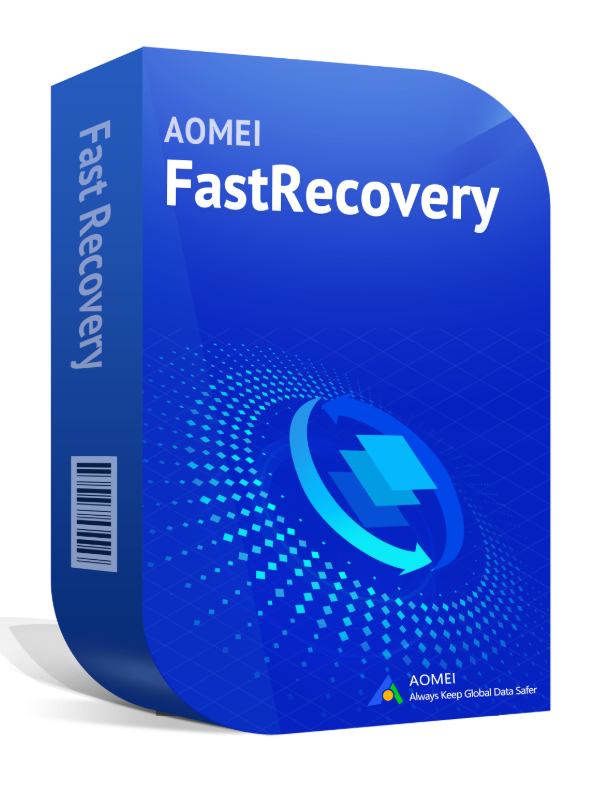This guide provides two easy methods to recover data from damaged Arry RAID. You don't need to unplug the RAID drive. All you need to do is download and install AOMEI FastRecovery NAS data recovery software. Then let this software scan and recover data from RAID 0, 1, 5, 10, just in a few clicks.

RAID stands for Redundant Array of Independent Disks. When RAID is enabled on a storage system, you can connect two or more drives to the system so that they act as a single, high-volume, fast drive. You can also configure them as a single system disk that is used to automatically duplicate (or mirror) your data for real-time backup.
RAID 0
Provides disk striping across all disks in a RAID disk group. RAID 0 cannot provide data redundancy, but it can provide the best performance of all RAID levels. It divides the data into smaller segments and distributes the data segments to each disk in the disk group.
RAID 1
Sets the system to data protection mode and its capacity is split in half. Half of its capacity is used to store your data and the other half is used for a duplicate copy. If a drive fails, your data is protected because it is duplicated.
RAID 5
Gives you the best of both worlds: fast performance by spreading data across disks; Protects data by dedicating one-quarter of each disk in a four-drive system to fault tolerance, leaving three-quarters of the system capacity available for data storage.
RAID 10
Provides very high I/O rates by removing RAID 1 (mirrored) segments. This RAID mode is ideal for business-critical database management solutions that require maximum performance and high fault tolerance. A system configured for RAID 10 delivers half the total capacity of all disks in the array.
RAID is a complex data storage technology that uses different disks to create logical volumes. Therefore, people find RAID data recovery process complicated. RAID data recovery is indeed difficult if you try the traditional way. You need to remove the disks, rebuild the RAID, and then connect to your PC to recover data.
Things become easier when you get AOMEI FastRecovery data recovery software. You don’t need to remove the disks and rebuild the RAID. The only thing you need to do is to use AOMEI FastRecovery data recovery software. Open and run this software. Then you can let the software analyze your NAS server. It has many advantagesas the best RAID data recovery software.

Here are the details to recover data from a corrupted, damaged, or failed RAID 0, 1, 5, or 10. Follow the steps below to recover data from your broken RAID.
Step 1. Connect your broken RAIDto your Windows PC. Launch AOMEI FastRecovery, a powerful data recovery software. Hover your mouse over the drive that stores the previously deleted files and click Scan.
Step 2. AOMEI FastRecovery will automatically run a Quick Scan and Deep Scan to find and display all deleted files including .jpg images. Use the Filter feature or explore the “Other Lost Files” tab to quickly find your images in their original location.
Step 3: Select the desired images and click “Recover x Files” to start the recovery process. When prompted, select a new location instead of the original location to avoid possible data overwriting.
By following these steps and using AOMEI FastRecovery, you increase your chances of successful RAID data recovery, recovering lost filesefficiently and safely.
If you are facing any difficulty in recovering NAS/RAID data, you can seek help from experts.
Seeking help from a professional data recovery center involves contacting the service, providing detailed information about the RAID data loss situation, sending the RAID drives for analysis, receiving a free evaluation and quote, and proceeding with the data recovery process if deemed necessary.
Now that you know the basics of RAID recovery in case of failure. You can choose the above-mentioned AOMEI FastRecovery NAS data recovery software to start RAID recovery. It is a powerful data recovery tool for anyone to recover lost, formatted, or deleted data.